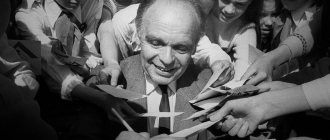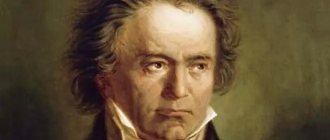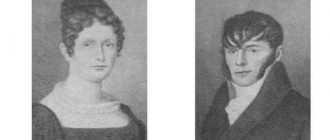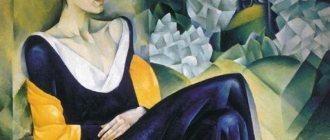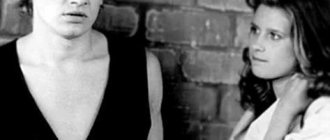- September 13, 2019
- Art
- Valeria Dashkevich
What is the work of the famous Venetian composer for us? This is luxury, sophistication, whimsy and baroque aesthetics. Vivaldi was born on March 4, 1678 in Venice and died on July 28, 1741 in Vienna. During his 63 years of life, he gave the world about 800 works, including operas and choral compositions. And also about 500 concerts for a wide variety of instruments. That is why he received the title of “Italian Bach”.
Known to the world not only as a composer, but also as a talented violinist, conductor and teacher. Many secrets of his life and work have not yet been revealed. Let us briefly consider the biography and work of Vivaldi.
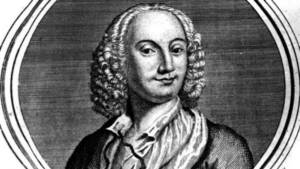
early years
A world-famous composer was born into the family of hairdresser Giovanni Batista Vivaldi. At that time, Venice was famous as a city of eternal celebration. Giovanni's house was also not spared from parties. He was a master of the violin and soon began performing in the orchestra of St. Mark's Cathedral.
Since childhood, Antonio had health problems; the boy suffered from asthma. Vivaldi's musical talents were evident from an early age. By the age of 10, he mastered the violin and often performed in the orchestra instead of his father. At the age of 13, Antonio began composing his own compositions. However, at the age of 15, the guy radically changed his type of activity and, following the instructions of his family, he began to build a career as a priest. He devoted about 10 years to the study of church sciences, but did not abandon the music of Vivaldi, so by 1703 he received not only holy orders, but also fame as a talented violinist.
However, Antonio’s job as a priest did not work out; after receiving ordination, he began working in an orphanage at the monastery as a violin teacher. The work required Vivaldi to write a lot of music for his students. Soon, thanks to Antonio's work, the school became the best in the city.
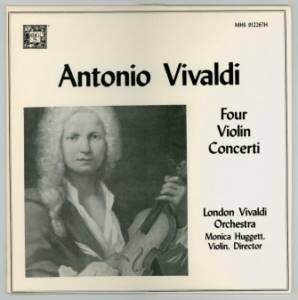
Illness and death
Like many composers, Vivaldi was often in dire need of money. In 1740 he arrived in Vienna to stage his operas. But due to the worsening political crisis, the musician was forced to leave for Saxony.
The composer suffered from bronchial asthma since childhood, and this forced move adversely affected his health.
A year later he returned to Austria, but the public soon forgot their recent favorite. In July 1741, the great composer passed away. He was buried in a cemetery for the poor.
Source
Vivaldi and opera
Even in a short biography of Antonio Vivaldi it is necessary to mention opera. Fame did not go to the head of the talented composer. At that time, he was completely immersed in a new idea: he decided to become an opera composer. At that time, opera was the genre that was in greatest demand among listeners. The composer's incredible determination allowed him to plunge headlong into a new type of creativity for him.
The first opera, Ottone at the Villa, became very successful. This became the motivation to work at an accelerated pace. Vivaldi composes 3-4 operas per year. Over the years, the composer's fame began to fade. He decided to return to his native Venice, but even here he was disappointed. The new compositions did not evoke the same enthusiasm, and the public had new idols.
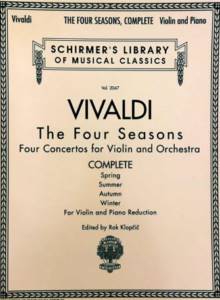
Adolescence and young years
Antonio Vivaldi was born on March 4, 1678, in Venice. His first lessons in playing the violin were given to him by his father. Antonio was such a capable student that at the age of 11 he could replace his mentor in the chapel of St. Mark's Cathedral.
From his early youth, having decided to devote his life to music, Anthony at the same time wanted to be a clergyman. He was ordained in 1704.
Unfortunately, Vivaldi's health was so poor that he was unable to celebrate the entire Mass. Therefore, he was given some relief. Vivaldi soon left his duties as a priest, but did not relinquish his priesthood.
Personal life
There are a lot of questions about Vivaldi’s biography, especially regarding his personal life. Researchers associate Vivaldi with only one woman - singer Anna Giraud. Antonio introduced Anna as his student. This raised doubts among others, and people quickly spread rumors about their union. This was not unreasonable, because he wrote many operas especially for her, and it was Vivaldi that she owed her fame as an opera singer.
However, there is no direct evidence of their romantic connection. Vivaldi himself said that he and Anna were connected only by friendship and professional cooperation, but she did not leave him a single step. She did not leave the composer in difficult times and was a faithful companion until the end of his life.
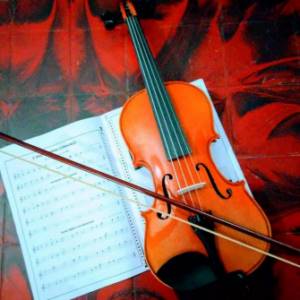
Composer's activities
Vivaldi began as an opera composer. In 1713 he created the 3-act work “Ottone at the Villa”. A year later, a new opera was created, “The Imaginary Madman.” It was based on the poem by L. Ariosto, “Roland the Furious.”
Around this time, the composer's talent was recognized by his colleagues, music critics, and opera fans. Vivaldi began to have more and more students. He devoted his free time from teaching to composing new musical works. The composer also actively collaborated with the theater, from where he regularly received a large number of orders.
Over time, the musician's name became known outside of Venice. In 1718, his opera Skanderbeg was staged in Florence.
In the same year, the composer accepted the invitation of Prince F. Hesse-Darmstadt and, moving to Mantua, became bandmaster at his court.
There the musician met A. Giraud. She became a student of the great composer, and the latter played a significant role in her development as an opera singer.
When studying the biography of A. Vivaldi, you should know the most important thing. In 1725, a series of his works was published entitled “The Art of Harmony and Invention.” It included the “Seasons” concerts. The creativity of this period is filled with drama. Many works contain solemn and gloomy notes.
Vivaldi made his greatest contribution to the development of the orchestral ensemble concert.
The role of Vivaldi in the development of world musical art
Thanks to the Venetian composer, a new technique for performing dramatic intensity appeared. It is called “Lombard” - shortening the duration of the first note and transitioning the rhythmically supporting note to the next one.
Vivaldi was also a pioneer in the genre of solo instrumental concert. Thanks to Antonio, many instruments in the orchestra began to be used as independent instruments. These are oboes, horns, bassoons. Vivaldi's work had a great influence on Bach. He was interested in the work of the Venetian composer and studied his works in detail. Bach translated many of Vivaldi's masterpieces in his own way, and they were considered his compositions for about 150 years. The works of Antonio Vivaldi are considered the standard for many world-famous violinists.
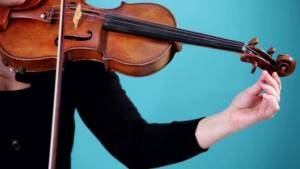
Antonio Vivaldi's life and work briefly
Antonio Vivaldi

The exquisite luxury, splendor and whimsical aesthetics of the Baroque era were fully embodied in the work of the famous Venetian Antonio Vivaldi. He is called the “Italian Bach,” and for good reason: over the 63 years of his life, the musician wrote about 800 works, including operas, choral works, and more than 500 concerts for various instruments and orchestra. A talented innovative composer, virtuoso violinist, brilliant conductor and teacher, he left behind not only a rich creative heritage, but also so many mysteries that many of them have not been solved to this day. Even the exact place of his resting place is unknown to his descendants. But Vivaldi’s extraordinary music, whose magnetism has no power over time, has been preserved in its original form and today occupies an honorable place among the greatest treasures of world musical art.
Read a short biography of Antonio Vivaldi and many interesting facts about the composer on our page.
Brief biography of Vivaldi
In 1678, in Venice, a son, Antonio, was born into the family of the barber Giovanni Batista Vivaldi. At the end of the 17th century, Venice was the recognized capital of entertainment, a holiday city, where all life passed to the sounds of music, and the house of the future composer was no exception in this sense. The head of the Vivaldi family was so skilled at playing the violin that he was invited to perform in the orchestra of St. Mark's Cathedral.

Vivaldi’s biography says that at the age of 15, Antonio’s life took a sharp turn - at the insistence of his parents, he chose a career as a clergyman and devoted the next 10 years of his life to the study of church sciences. However, he did not give up his music studies and by 1703 he not only received holy orders, but also became famous as a virtuoso violinist. He was nicknamed the “red priest” for his hair color, but Vivaldi did not perform church duties for long. Very quickly he refused to lead masses - according to one version, because his health did not allow it, according to another, again because of his passion for music.
Vivaldi composed more than 450 concertos for the Pieta orchestra and often performed solo violin parts himself. Venice had never heard such a violin, which gave birth to sounds as if from the depths of the human soul.
Very quickly, the young composer’s popularity spread far beyond the borders of his hometown. Every distinguished guest coming to Venice considered it his duty to attend the performances of Antonio Vivaldi. In 1705 and 1709, the musician’s sonatas were published in separate collections.
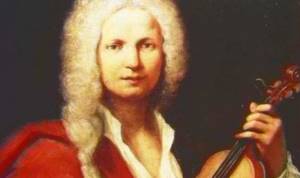
In 1721-22, Vivaldi worked in Milan and Rome, continuing to compose new operas.
In his declining years, the composer's affairs greatly deteriorated. He decided to return to Venice, hoping to find peace of mind in his hometown, which had applauded him for almost 40 years. But disappointment awaited him. The music he composed no longer aroused the former delight; the public had new idols. Even at his native conservatory, with which he was associated for 38 years of fruitful work, they made it clear to him that his services were not really needed.
Interesting Facts:


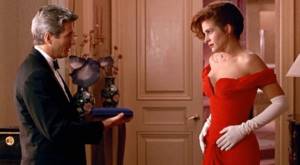
"The Red-haired Priest's Girlfriend"

There are many “blank spots” in the composer’s biography, and his personal life is no exception. His name is closely associated with only one woman - singer Anna Giraud. The musician met Anna during his work in Mantua. He returned to Venice with her. The famous Venetian playwright C. Goldoni mentions that Vivaldi introduced Anna Giraud to him, calling her his student. But evil tongues quickly dubbed the young singer “the girlfriend of the red-haired priest,” and not without reason. The composer clearly favored her, from the moment they met he wrote operas especially for her, and it was Vivaldi that Anna owed her fame as an opera singer. In addition, Anna, together with her sister Paolina, was part of his inner circle, accompanied the composer on all his trips, and this gave rise to a bunch of rumors about the fact that the composer led a lifestyle that was not appropriate for a clergyman.
There is no direct evidence of their romantic connection. Moreover, Vivaldi fiercely defended Anna's honor, explaining to everyone that due to health problems he needed help, and Anna and Paolina, who was a nurse, were only looking after him. In a letter to his patron Bentivoglio dated November 16, 1737, he explained that he and Anna were connected only by friendship and professional cooperation. The only hint that Anna was the composer’s muse and the lady of his heart is the magical music he wrote after meeting her. It was then that the “Seasons” cycle, which immortalized his name, appeared, the “Night” concerts, and the masterpiece of sacred music “Gloria”.
The role of Vivaldi in the development of world musical art
Vivaldi's influence on the development of musical art extends to a wide range of musical activities, which confirms the unique creative personality of the talented composer and virtuoso violinist.
Interesting Facts
In a short biography of Vivaldi, it is also worth mentioning that the life of such a great man is still shrouded in secrets. Research is ongoing to this day, and scientists never cease to amaze with interesting facts from the composer’s life:
- The search for works and research into the biography of Vivaldi continues today. The latest find dates back to 2010. His flute concerto was found in Scotland.
- The composer’s most famous work is the cycle of violin concerts “The Seasons”.
- In total, 90 operas are known that came from the pen of Vivaldi. However, the exact authorship has been established for only 40.
- Vivaldi and Mozart rest in the same cemetery in Vienna, where the poorest sections of the population were buried.
- A crater on Mercury is named after Vivaldi.
- In the film Pretty Woman, the composer's music illustrated high society. This was the director's idea.
- Scientists have found that periodically listening to Vivaldi’s “The Four Seasons” improves memory in older people.
- Researchers believe that the composer determined the further development of European music for several decades.
- Stravinsky said that Vivaldi was a bore who could compose the same concerto 600 times. This is because the composer could write countless versions on the same musical theme.
- Vivaldi is a violin extravaganza.
Even though Antonio Vivaldi is the greatest composer, it was not until the early 20th century that his music came back to life. Today, every famous orchestra has Vivaldi's compositions in its repertoire. It took more than 200 years for humanity to rediscover and appreciate the masterpieces of the great Venetian composer. This is the biography of Vivaldi and interesting facts about him.
Last years
In mid-May 1740, the composer left Venice and went to Emperor Charles VI. At that time, war began in Vienna, the emperor died shortly after Vivaldi’s arrival, and the heirs entered into a lively struggle. Because of this, Antonio had to leave the Austrian city, moving to Dresden. Most likely, it was there that the disease overtook him.
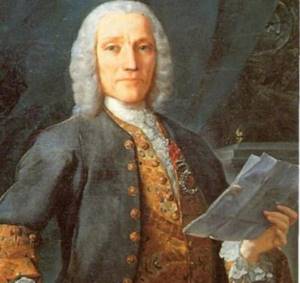
Amazingly, the work of the talented musician was unfairly forgotten for almost 200 years. It was not until the 1920s that the Italian musicologist Gentili came across the composer's recordings. Nineteen operas, more than 300 violin concertos and other works were discovered in the manuscripts. Vivaldi's authorship is officially confirmed for only 40 operas, although it is known that he wrote more than 90 major works during his life.
Source
